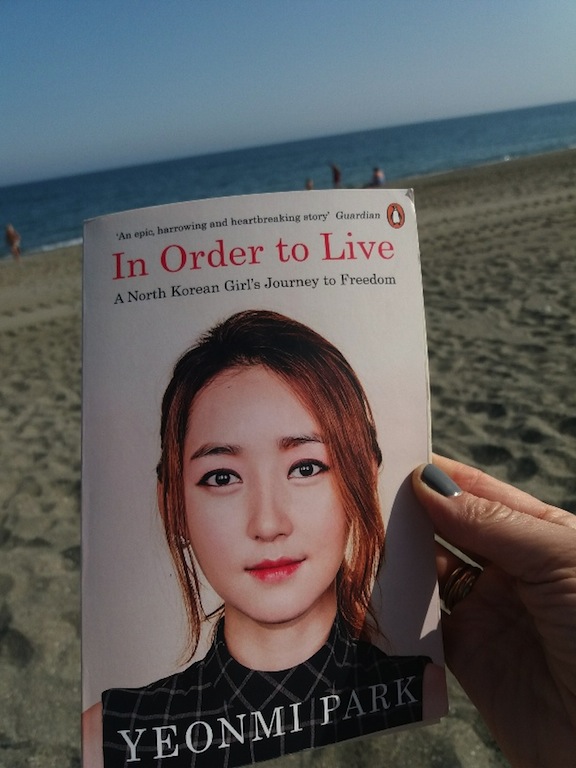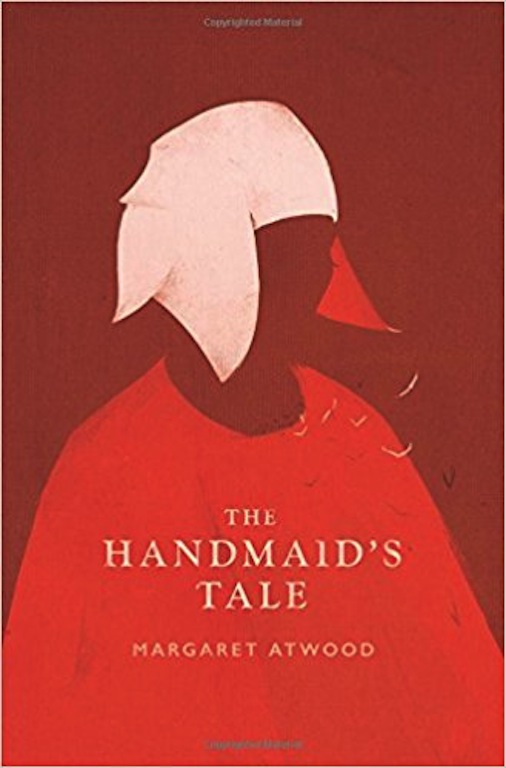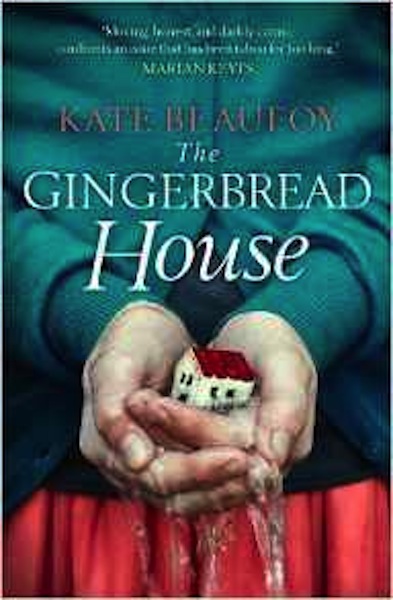Here are short reviews of three books that I enjoyed reading, would be perfect for Book Clubs and generate a lot of debate and discussion. One is a biography of a young girl who fled North Korea, the second portrays a dystopian society of the future and the third addresses the difficult but topical subject of dementia and tells an excellent story at the same time. All, in my view, are ‘must reads’.

- In Order to Live – by Yeonmi Park
It is very rare that I read a book that I do not enjoy, partly because I rely on the recommendation of friends. This was loaned to me by Sara and I read it over a few days in Spain last October. It is very topical at the moment with North Korea seldom out of the news and gives you an insight into life there. The story of the author, who as a thirteen- year-old fled with her mother and escaped across the Yalu river into China in search of her sister, is truly inspirational.
Life under the brutal, oppressive regime of North Korea is truly horrific, a tale of starvation, deprivation, control and terror. Her earliest memory is one of fear; her mother warned her not to even whisper because even the birds and the mice could hear what was said. Though at one stage her family were considered privileged, they fell from favour and for a period Yeonmi and her sister existed on insects, flowers and plants.
Their escape to China did not bring freedom initially and this section of the book is particularly harrowing as Yeonmi talks about the sex trafficking trade and how it impacted her and her family.
But this is ultimately a story of hope, resilience and triumph. Easy to read, you will not want to put this one down.

2. A Handmaid’s Tale – by Margaret Atwood
Maybe you saw the BBC drama series. I loved it and though I have read many of Atwood’s books, I had not read this one. Fascinated by the theme, I wanted to learn more than the TV series explained. And I was not disappointed.
A group of fundamentalist Christians have seized control and established the State of Gilead in North America. Women are the property of men and are there to serve the dictatorship. Women are categorised. Wives of the ruling class wear blue, the wives of the workers wear blue and green and the Marthas (servants) wear green. The Aunts who wear brown control the handmaids and assist at the births. The Handmaids, dressed in red, the remaining fertile females, are given to the elite ruling men to procreate and if they become pregnant, and give birth, the babies are taken and handed over to the wives. And the Handmaids are handed over to new men. There is a worse fate; you could be an Unwoman and shipped off to The Colonies. Everyone has a role in this new world and The Eyes, the equivalent of The Secret Service, will ensure you do not deviate from yours.
In North Korea, the citizens are not allowed to think for themselves; in the dystopian world of The Handmaid’s Tale, the people are controlled and also told how to think and in both worlds the ordinary people live in fear. This is not a pretty story, but it is a gripping tale and worth reading.

3. The Gingerbread House by Kate Beaufoy
I had put off reading the book by Kate (whom I knew in college) because I wondered how a novel with the theme of dementia could be anything but depressing. I was wrong. Though the subject matter is a heavy one, the novel is not.
Tess the protagonist has agreed to look after her mother-in-law for three weeks in the isolated countryside. Her husband returns for the weekends.
Searingly honest, based as it is on Kate’s own experience of looking after her own mother-in-law, who had dementia, the book details the difficulties, the repetitiveness of the tasks and the conversations and frustrations of both patient and carer.
But there is far more: the characters are believable, the narrative flows and humour (much of it black) and pathos both feature as we wait for something terrible to happen. There is a constant fear that Tess is going to snap and her teenage daughter Katia seems unable to help. Beautifully written and poignant, it opened my eyes to the horrors of dementia and the burden on the shoulders of the carer. And, of course, there is a very good story too.



Excellent recommendations! I read The Handmaid’s Tale, long ago and was fascinated by the gripping story and strong characters (definitely worth a re-read). I will most definitely check out “The Gingerbread House,” as dementia has touched our family. Yeonmi Park’s, recounting of her family’s escape from North Korea, sounds absolutely riveting and so very hard to fathom that unlike Margaret Atwood’s novel, is non fiction. Three unique and diverse picks, Hilda. Thanks for these!
Thanks Karen. You always leave such wonderful comments. xxx
Thanks, in particular, for The Gingerbread House. Just added to my towering TBR pile!
Thanks for the comment Patricia. You will love it.
Your reviews have piqued my interest! I read The Handmaid’s Tale several years ago and keep meaning to read it again after watching the TV series.
Yes Gail it gave so much more background than you can gleann from the series..which I loved. The others are also excellent.
Hilda,
Those are 3 books I need to read!
I knew that the Handmaid’s Tale is an award winning television series, (which I haven’t seen yet) and I have heard of the Gingerbread House.
Thank you for sharing books that are now going to be on my must read list.
Have a wonderful weekend!
Hugs,
Robin
You are welcome Robin. You will not be disappointed x
Oh, what a great list!!
I’ll have to suggest these for my book club!!
Thanks Hilda!!
XOXO
Jodie
http://www.jtouchofstyle.com
I loved all of them.
Must get that Korean book as currently reading Pachinko by Min Jin Lee, a family saga which starts in Korea in 1911 and goes through time to the 1980’s and the difficult time that Koreans had living in Japan. The Guardian described it as a “tribute to a people that history seems intent on erasing”, …… so true today as Trump and Kim have made the area so unstable again. A good read indeed!
Thanks Jackie. I will put it on the list. I love being recommended books.